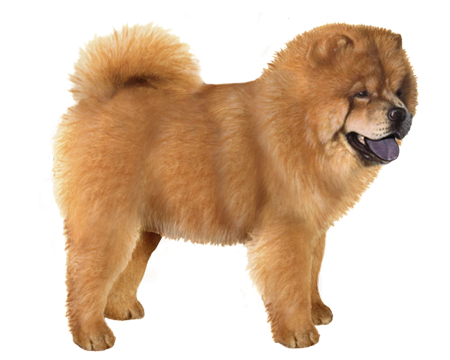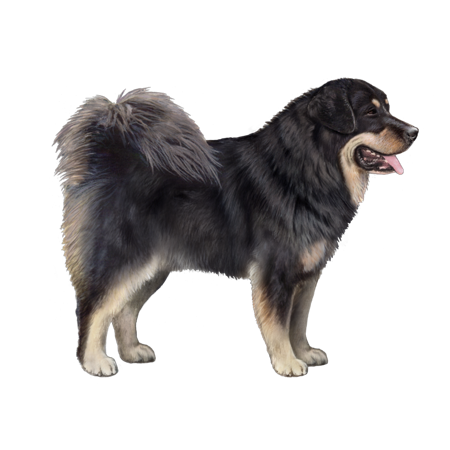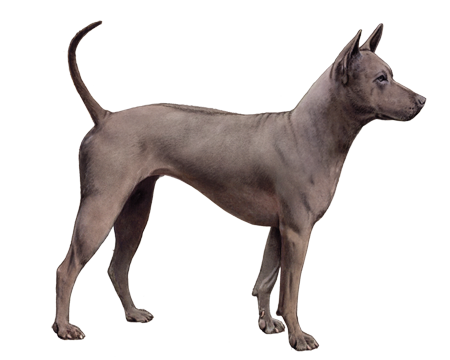
Pungsan Dog
The Pungsan is a rare hunting breed from North Korea. Honored as a national symbol, these dogs are brave, tenacious, and protective.
Interested in discovering if your dog is a Pungsan Dog?
Check out Wisdom Panel's DNA tests.
Pungsan Dog Traits
General Appearance
Pungsans are medium-sized spitz-type dogs with a balanced build and muscular body. Their straight, strong legs help them easily traverse slopes and mountains.
Coat and Colouring
These dogs have thick, plush double coats (always an off-white color) that protect them in severe weather.
Distinctive Physical Traits
Notable traits of the breed include small, dark eyes, prick ears, and a thick tail that curls over the back.
Pungsan Dog Temperament
Pungsans are loyal, brave dogs. They enjoy spending time with their people and often get along well with other dogs. But they may be wary of strangers.
Though their protective nature makes them good guard dogs, Pungsans should be properly trained and socialized for the safety of all. Due to a high prey drive, this breed may not be the best choice for households with small pets.
Pungsan Dog History
Courageous and fierce, the Pungsan originated in Poongsan, Lianggang Province, Korea, in the 16th century. Koreans and Russians used these dogs for hunting tigers, bears, and wild pigs.
North Korea designated the breed a national monument in 1956. And on two occasions, North Korean leaders gifted the dogs to South Korean presidents. Pungsans have also appeared in animated films and novels.
Pungsan Dog Care
Nutrition
Pungsans thrive on a high-quality diet formulated for their life stage (e.g., puppy, adult, senior). To help them maintain a healthy weight, measure their portions to avoid overfeeding and keep an eye on how many treats you're giving them. As a guideline, treats should make up no more than 10% of a dog's daily calories.
Grooming
Frequent brushing is a must to maintain this breed's thick double coat. To keep loose fur under control, brush your dog a couple of times a week. When they blow their coats (twice a year), more frequent grooming sessions can help keep tufts of fluff from decorating your floor.
To reduce your pup's chance of ear infections, check their ears regularly and clean them as needed to remove wax build-up and debris. Nail trims should also be part of every dog's grooming routine since overly long nails can cause pain or even lead to problems running or walking.
Lastly, good dental hygiene will support your dog's overall health. Dental disease is one of the most common health conditions in adult dogs. Left untreated, it can contribute to other serious issues. In addition to professional cleanings, establish an at-home dental care program that includes regular teeth brushing and veterinarian-recommended dental chews.
Exercise
Pungsans are active dogs that need plenty of daily exercise to stay happy and healthy. If they can't release pent-up energy, they may turn to digging, chewing, or other destructive behaviors.
Fun activities for this breed include long walks, hikes, and games. A fenced backyard will give your pup space to run around while also preventing them from chasing after unsuspecting critters.
Training
Early socialization and obedience training are essential for this breed. These independent, strong-willed pups may exhibit dominant behavior if their humans don't establish themselves as the pack leaders. Consider working with an experienced trainer familiar with the breed.
Breed Group
Asian and Oceanian
The Asian and Oceanian group is comprised of breeds whose origins lie in Asia, which have spread as far as Australia, the islands of the Pacific, and the Arctic. This group is possibly the most ancient of all breed groups and were bred for a variety of purposes, including guarding, hunting, and as draft dogs.






















































